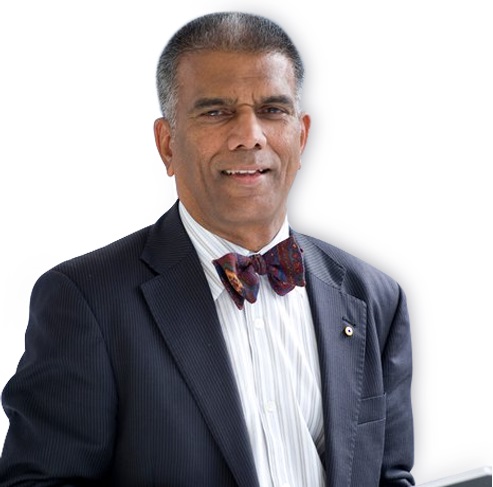With a career spanning decades in medical education and leadership, Professor Balakrishnan R (Kichu) Nair AM has been instrumental in driving progress in medical and health professions education. He is a professor of medicine and associate dean at the University of Newcastle’s School of Medicine and Public Health in Australia. Additionally, he serves as the director of the Centre for Medical Professional Development at Hunter New England Health Service, the district medical director and director of educational research for the Health Education & Training Institute of New South Wales. He is also the editor-in-chief of the Journal of Health Education in Practice. In recognition of his contributions to medical education and clinical work, he was awarded the Order of Australia (AM) in 2009. His journey with the Harvard Macy Institute (HMI) has played a pivotal role in shaping his career and contributions to the field.
A Defining Experience at the Harvard Macy Institute
Professor Nair’s engagement with HMI began in 2000 when he was nominated by his medical school to attend the Leading Innovation in Health Care and Education program. As someone already deeply passionate about medical education and leadership, he found the program to be a transformative experience. Learning from distinguished faculty at Harvard Medical School and Harvard Business School, and particularly influenced by Professor Clayton Christensen’s teachings on disruptive innovation, he integrated these principles into many of his own pioneering initiatives.
Another critical aspect of the program for Professor Nair was the deep dive into health care safety. Through case studies on major historical events such as the Challenger disaster and the Cuban Missile Crisis, he gained valuable insights into leadership and system-based approaches to challenges in health care. These lessons shaped his approach to leadership, emphasizing the importance of learning from failures to drive meaningful change.
Bringing Innovation to Australian Medical Education
Inspired by his Harvard Macy experience, Professor Nair returned to Australia with a vision for transformation. He established the first interdisciplinary learning unit at John Hunter Hospital in Newcastle, uniting medical, nursing, and allied health students to learn and work collaboratively in clinical settings, fostering teamwork and patient-centered care.
Recognizing the need for a more effective assessment system for international medical graduates, Professor Nair spearheaded Australia’s first workplace-based assessment program. He moved beyond traditional exams to evaluate doctors in real clinical settings, using tools such as multi-source feedback, case-based discussions, and Mini-CEX assessments. Since its inception, this program has expanded to over 30 centers across Australia, revolutionizing how internationally trained doctors are assessed.
In 2017, he launched the Academy of Clinical Educators at Newcastle Medical School, an initiative aimed at upskilling clinicians in teaching methodologies. With over 550 faculty members and 250 graduates of its certificate program, the academy has significantly improved the teaching capabilities of clinicians, ensuring that future medical professionals receive high-quality education and mentorship.
The Enduring Impact of the Harvard Macy Institute
Beyond fostering innovation, HMI has connected Professor Nair with a global network of educators and leaders, resulting in valuable collaborations. In particular, he appreciated the opportunity to work closely with Dr. Subha Ramani on clinical teaching and feedback methodologies. He continues to advocate for HMI, encouraging junior colleagues to participate in its programs to gain the skills and insights necessary for transforming healthcare education.
As health care and medical education continue to evolve in the digital age, Professor Nair recognizes the increasing role of technology and artificial intelligence in shaping future learning environments. He commends HMI’s adaptability in addressing these challenges and preparing educators to lead the next generation of learners.
"The new generation of learners is different from us. HMI has changed and adapted to the changing world of learning and teaching. AI is here to stay, so we must think about how we are going to integrate it for the current generation of learners and teachers," Professor Nair explains. "HMI has once again harnessed disruptive innovation, encouraging educators to think creatively about how to train the next generation of health care professionals."
Dr. Sarah Wood, HMI director, has played a crucial role in guiding these adaptations, engaging senior clinical leaders in discussions about how best to teach our newest generation of learners. She has led thoughtful, interactive sessions that have been met with great enthusiasm. "Sarah presented a well-received webinar for me on health education training in New South Wales last year. The attendance and interest were enormous," Professor Nair shares. "People want to learn about how to teach the new generation, and I am grateful that HMI and Sarah are taking a leadership role."
Reflecting on his journey, Professor Nair credits HMI for inspiring and equipping him with the tools to drive meaningful change. His leadership in medical education, influenced by his time at HMI, has left an indelible mark on Australia’s health care training landscape. His advice for those considering an HMI course is simply: “Go and do it. It will change your career.”
HMI Staff


